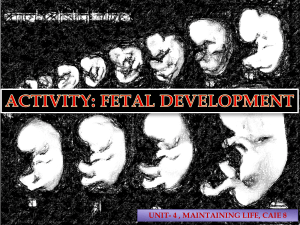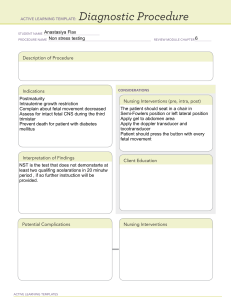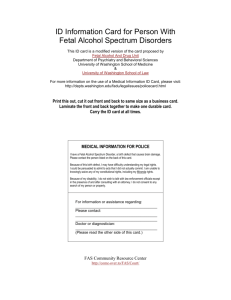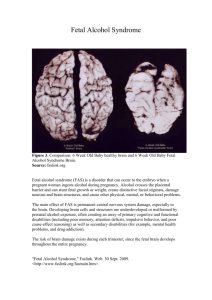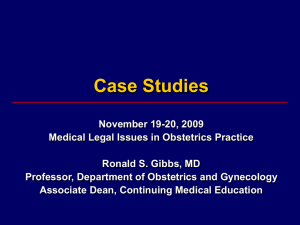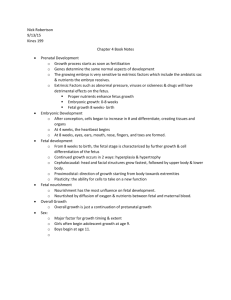Fetal Autopsy for Skeletal Dysplasia Diagnosis: A Case Report
advertisement
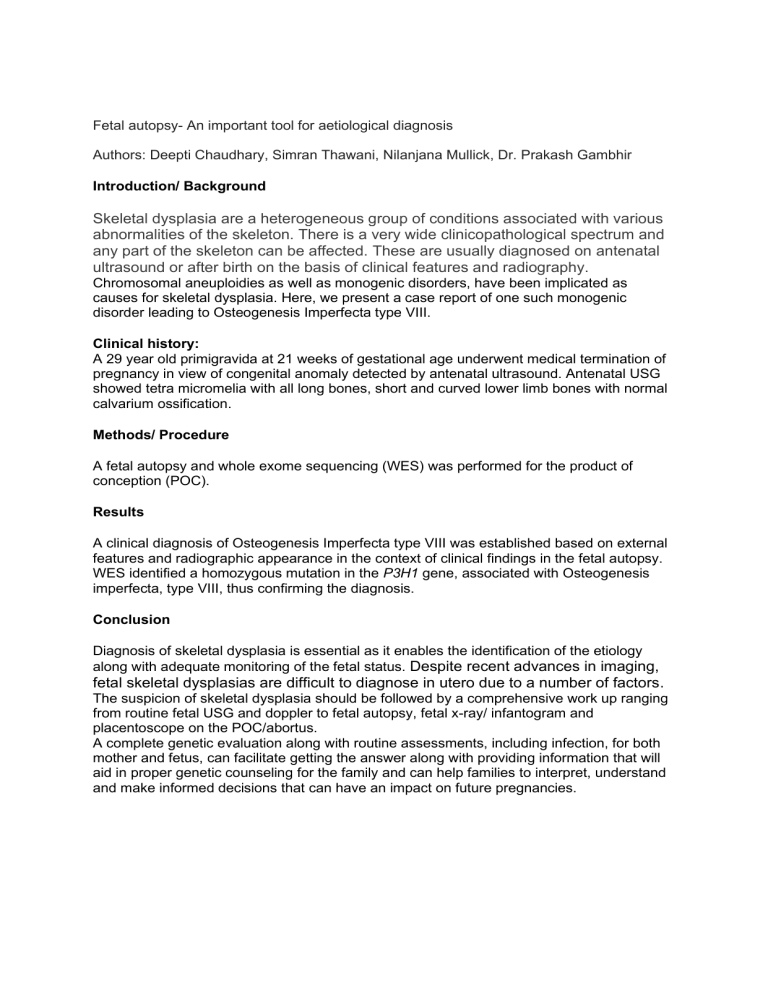
Fetal autopsy- An important tool for aetiological diagnosis Authors: Deepti Chaudhary, Simran Thawani, Nilanjana Mullick, Dr. Prakash Gambhir Introduction/ Background Skeletal dysplasia are a heterogeneous group of conditions associated with various abnormalities of the skeleton. There is a very wide clinicopathological spectrum and any part of the skeleton can be affected. These are usually diagnosed on antenatal ultrasound or after birth on the basis of clinical features and radiography. Chromosomal aneuploidies as well as monogenic disorders, have been implicated as causes for skeletal dysplasia. Here, we present a case report of one such monogenic disorder leading to Osteogenesis Imperfecta type VIII. Clinical history: A 29 year old primigravida at 21 weeks of gestational age underwent medical termination of pregnancy in view of congenital anomaly detected by antenatal ultrasound. Antenatal USG showed tetra micromelia with all long bones, short and curved lower limb bones with normal calvarium ossification. Methods/ Procedure A fetal autopsy and whole exome sequencing (WES) was performed for the product of conception (POC). Results A clinical diagnosis of Osteogenesis Imperfecta type VIII was established based on external features and radiographic appearance in the context of clinical findings in the fetal autopsy. WES identified a homozygous mutation in the P3H1 gene, associated with Osteogenesis imperfecta, type VIII, thus confirming the diagnosis. Conclusion Diagnosis of skeletal dysplasia is essential as it enables the identification of the etiology along with adequate monitoring of the fetal status. Despite recent advances in imaging, fetal skeletal dysplasias are difficult to diagnose in utero due to a number of factors. The suspicion of skeletal dysplasia should be followed by a comprehensive work up ranging from routine fetal USG and doppler to fetal autopsy, fetal x-ray/ infantogram and placentoscope on the POC/abortus. A complete genetic evaluation along with routine assessments, including infection, for both mother and fetus, can facilitate getting the answer along with providing information that will aid in proper genetic counseling for the family and can help families to interpret, understand and make informed decisions that can have an impact on future pregnancies.
